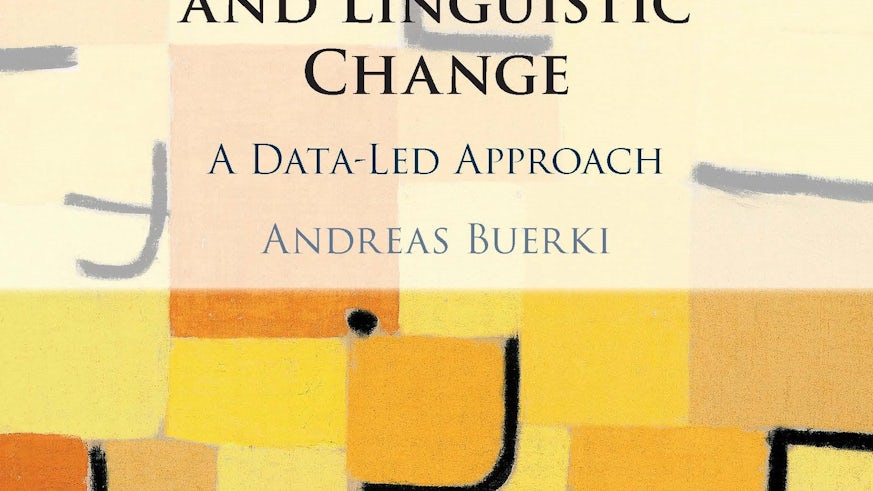What our phraseology tells us about language change
20 April 2020

New study reveals how social and cultural change are the key drivers in how our language is changing
Research by a quantitative corpus linguist at the School of English, Communication and Philosophy is challenging thinking about language change.
Formulaic Language and Linguistic Change: A Data-Led Approach by Dr Andreas Buerki investigates formulaic language from the point of view of language change. Employing a novel quantitative and data-led approach, it traces and analyses change in phraseology across the twentieth century based on the test case of German as used in Switzerland – ideal because of the small speech community and cultural community it represents.
A substantial proportion of our everyday language is formulaic. These frequently repeated chunks – think ‘you know’ and phrases like ‘many thanks!’ and ‘Is this seat taken?’ - form a phenomenon central in language use.
Drawing on nearly 20 million words of textual evidence, Buerki’s book shows that social and cultural change in the speech community is the predominant motivator of change, though other factors, including the internal dynamics of language as a system of interacting patterns, are also at play.
His work demonstrates a close link between language change and the culture of the speech community, arguing that this has repercussions for the study of language in general, as well as the study of society and history.
Working in the Centre for Language and Communication Research, quantitative corpus linguist and phraseologist Dr Andreas Buerki looks at how language is actually used by speakers and writers in real contexts.
In his new book he reveals that the patterns of language are changing far more rapidly than many linguists have thought:
“The driver of this change, in the main, is the inter-connectedness of language with what happens in the community of the users of that language. Although linguistic change is always constrained and modulated by the fact that language is a system of signs that has to maintain a certain order to remain effective, I hope that these findings will help to re-connect the theoretical study of language with the wider study of culture, society and history in ways that recognise the profound importance of these neighbouring fields when it comes to explaining how language operates and changes in all its facets.”
Dr Andreas Buerki is a member of both Cardiff Corpus Network and Digital Cultures Network and on the executive board of the European Society of Phraseology. Among his recent academic publications are Furiously Fast: on the speed of change in formulaic language, (How) is formulaic language universal? Insights from Korean, German and English and Brexit Phraseology, the latter presented at International Corpus Linguistics Conference in 2019.
Out this month,Formulaic Language and Linguistic Change: A Data-Led Approach is published by Cambridge University Press.
